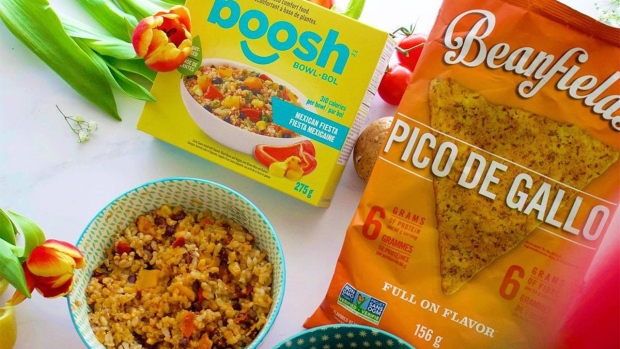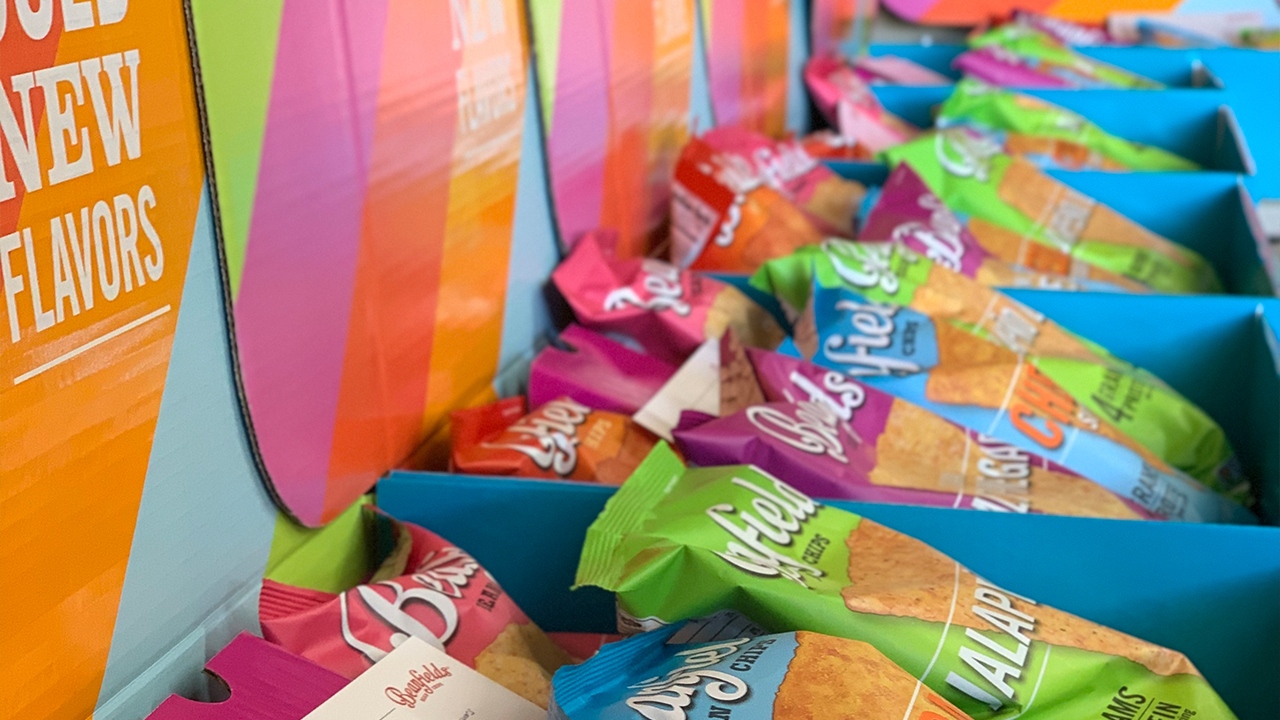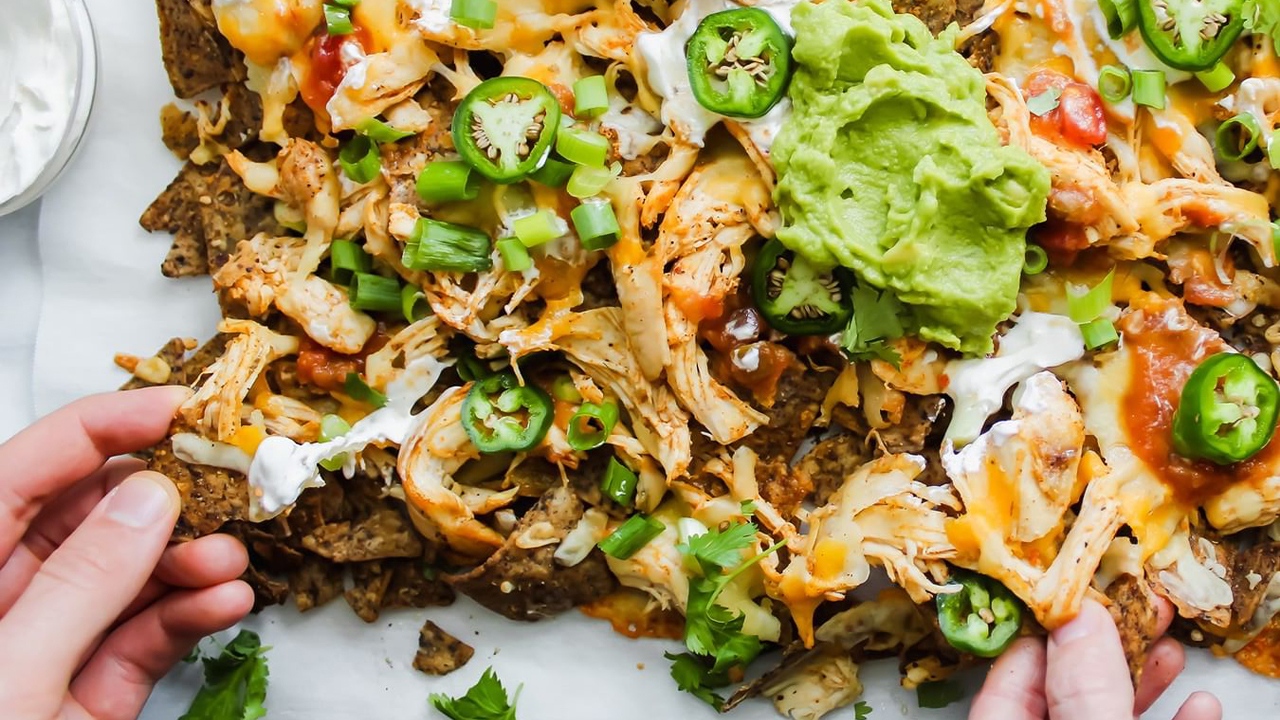Dec 18, 2023
How Boosh is Riding the Global Plant-Based Snack Revolution
Presented by: Market One


The increasing emphasis on health, sustainability and ethical consumerism is driving the global plant-based food sector to new heights. Health-conscious consumers, especially from the millennial and Gen Z populations, are also steering plant-based entrepreneurs to evolve so they do not have to sacrifice taste in the pursuit of snacking better.
Riding this global renaissance in the plant-based food and snacks sector is Connie Marples, founder of the Canada-based Boosh Plant-Based Brands Inc. (CSE: VEGI | OTCQX: VGGIF).
“Boosh was created for one simple reason. We wanted to help health-conscious consumers meet their goals by providing convenient plant-based meals for people who found it challenging to prepare meals from scratch,” said Marples.
Since its launch in 2017, Boosh’s mission of providing delicious, high-quality, 100% plant-based, gluten-free and ready-to-eat meals, that are both quick and convenient, has rapidly gained recognition in the industry.
Marples has won several awards, including the 2019 Local Innovation Award (Sobeys, BC), 2020 finalist Product of the Year, Hearty Shepherd's Pie for Two Entrée (BC Food & Beverage) and 2020 Rising Star Award (BC Food & Beverage) as well as being named one of the top plant-based company founders to watch out for in 2022 by Vegpreneur.
In May 2021, Marples took her company public which enabled Boosh to grow market share by expanding through innovation and acquisitions.
In February 2022, Boosh executed an asset purchase agreement to acquire Beanfields Inc. and it was this move that created real momentum for the company. Headquartered in Los Angeles, Beanfields manufactures gluten-free, non-GMO, vegan, top eight allergen-free flavored bean-based chips and other snacks.
Founded in 2010, Beanfields, with a track record of up to US$16 million annually, has its products available via a network of 7,000 North American retailers. It’s much sought after snacks are also exported to Mexico, Dubai, South America and Australia.
The base chip for Beanfields comes in three different versions. A black bean, a navy bean and a mixed black/navy bean chip. Each of these bases have different tastes, textures and appearance that are used to match appropriate flavor profiles. (i.e., the Salt and Vinegar flavour suits the subtle flavouring of a white bean chip whereas the Nacho or Pico De Gallo are better suited to the mixed version which is a little heartier.)
People love that Beanfields are healthier than the competition, but taste just like corn tortilla chips, said tastingtable.com in a ranking of the 15 healthiest chip brands.
In August of this year, Boosh signed an agreement with Simple Yummy Chips LLC, for the sale and distribution of chips, crackers, rings and other bean-based snacks made by Beautiful Beanfields.
This transaction catapulted Boosh into being one of the largest emerging markets plant-based food companies in the world, according to sector analysts. “The arrangement offers many benefits to support the company's growth and provide shareholder value. It allows the tremendous US demand to be met without our capital or resources, while giving us a guaranteed profit and allowing us to focus on Canadian and global growth," said Marples.
“Although there were some initial delays with Yummy Chips’ execution plan, they are now producing to fill orders as they work to replenish stock across the US in current retailers, as well as opening new accounts. To ensure smooth production flow we are also working on sourcing a secondary supplier for our core ingredients,” she said.
Boosh enters a new era of growth.

The acquisition of Beanfields not only brings a leading brand into the Boosh portfolio but also reflects the company’s strategy of providing value creation and an instantly accretive opportunity for shareholders.
Boosh's ambitious phase of growth involves strengthening ties with buyers from South America, Australia, and Dubai as well as collaborating with Export Development Canada. The latter of which has undertaken the thorough vetting of buyers on a global scale.
The company’s ambitions are in line with Canada’s plan to grow its plant-based food, feed and ingredient sector to $25 billion in annual sales by 2035. Canada’s plant-based companies, like Boosh, are on the right track in their drive to meet evolving consumer demands, according to Protein Industries Canada.
The Global Innovation cluster, created to position the nation as a key source of high-quality plant protein and plant-based products, was recently granted $150 million in funding from the Government of Canada to strengthen the nation’s plant-based ecosystem.
“Plant-based foods, such as beans, peas and lentils, are becoming increasingly popular as consumers recognize the health benefits of adding them to their diet, alongside the benefits their low carbon footprint provides our soil and environment,” stated Bill Greuel, CEO of Protein Industries Canada.
This government support will push innovations, collaborations and partnerships as consumers demand more alternatives and additions to traditional protein sources, said Marples.
As Boosh continues to innovate and capture market share, it is well-positioned to cater to the increasing demand for convenient, delicious and nutritious plant-based foods. “The hardest part of the journey is getting listed with retailers and selling through to consumers. We are already there, so now we just need to keep increasing production," said Marples.
Boosh’s business model in a rapidly growing market

According to Skyquest, the global healthy snack market size was valued at US$83.98 billion in 2021 and is poised to grow from US$89.12 billion in 2022 to US$143.14 billion by 2030. “Working class people and college graduates are driving the market demand, as healthy snack products have evolved as meal options for them,” said the Skyquest report.
Another analysis by Future Market Insights (FMI) said the US is expected to account for 87% of the North American plant-based snacks market by the end of 2032. Presently, North America’ plant-based snacks market dominates with an estimated value of above US$25 billion by the end of year 2032, FMI projected.
“With snack consumption steadily rising in Europe and North America, the plant-based snacks market will pick up pace in the coming years”, said a Future Market Insights analyst.
Euromonitor International said vast opportunities lie ahead in the plant-based snacks sector as demand ramps up with consumers looking to reduce animal-based foods, whether through a vegan, vegetarian or flexitarian diet. Plant-based snacks demand a more premium price tag, which consumers seem to accept given the extra health and environmental benefits the product gives, said the European agency.
In Asia, changing lifestyles and increasing demand for vibrant snacks with added flavor and taste are driving the growth of the plant-based food market. India and China are expected to dominate the Asia Pacific's plant-based snacks market, with a growth rate of 6.1% and 9.5% respectively, said FMI.
Earlier this October, South Korea became the second nation in the span of two weeks — Denmark was the first — to announce a national plan dedicated to boosting local plant-based food production and promoting alt-protein consumption. The Korea Institute of Rural Economics forecasts that South Korea’s vegan substitute market will reach US$207.4 million by 2026, as these products become increasingly popular amongst Koreans in their 20s and 30s, according to Korea Bizwire. Additionally, Singapore, Japan and Thailand are among other Asian countries that have strong government support for the plant-based food industry.
Against this global demand, Marples and her team are focussing on a three-prong business approach in 2024;
- A domestic plan that is direct to Canadian grocery retailers and the hospitality sector, including quick serve restaurants, universities and convenience markets via its broker/distributor networks. The domestic plan will also have a direct-to-consumer component through Amazon and Boosh Food/Beanfields websites.
- A US market plan using the reach of sales and distribution firms like Yummy Chips Inc. The company expects it will be able to beat the US co-manufacturing pricing by producing in Canadian dollars and selling in US dollars.
- The international export plan involves distributions via shipping containers or trucks to Mexico, South America, Middle East and Australia to start. Beanfields has previous relationships with distributors in these countries and they are already placing orders. More international expansion is in process targeting Great Britain and Asia.
Marples’ expansive career in food, marketing and sales has all contributed to her drive and determination to succeed in the fast-paced world of food manufacturing. “I am a big believer that to be successful, you need to do what you love and love what you do,” said Marples, whose underlying passion for sharing healthy and nourishing meals underscores a new era for Boosh.
To learn more about Beautiful Beanfields Inc, visit their website here, as well as on:
To learn more about Boosh Plant-Based Brands, visit their website here, as well as on: